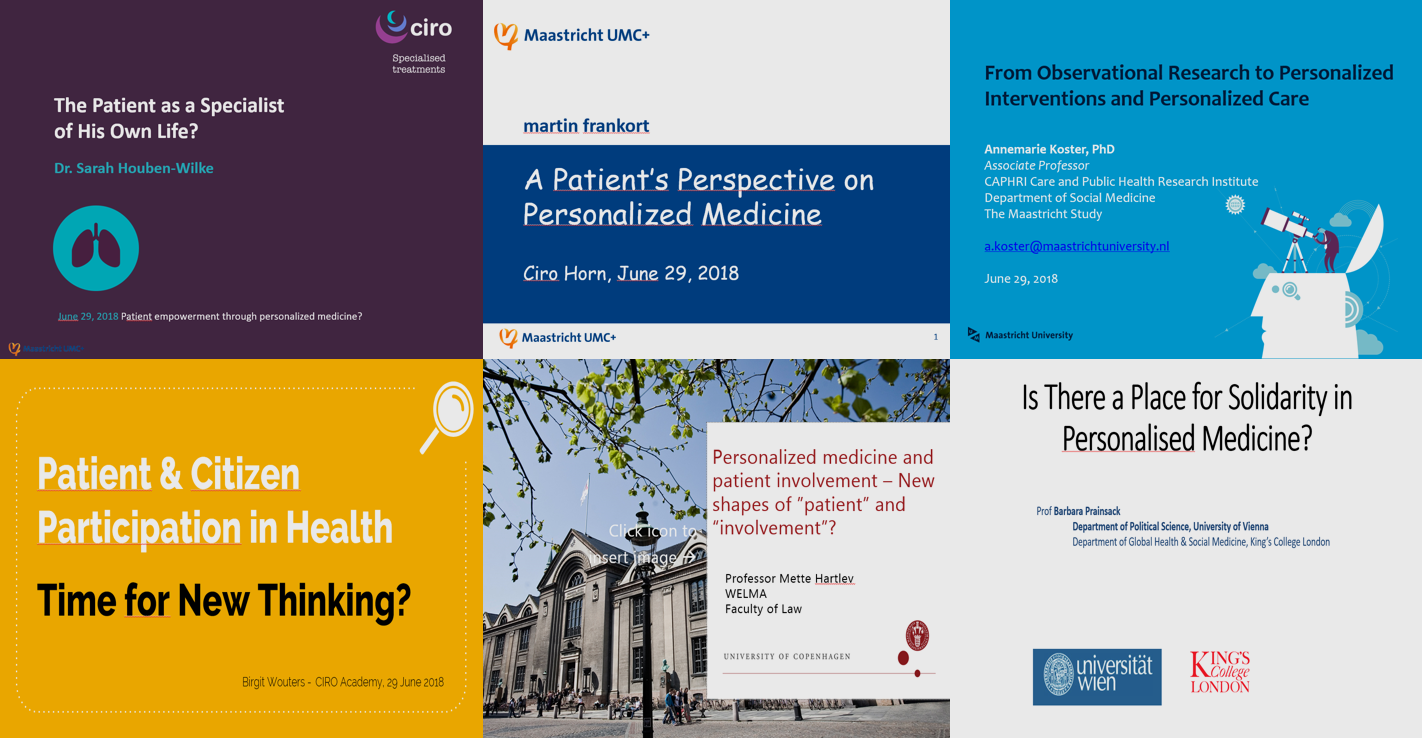News
An inspiring day filled with excellent lectures.

The days when personalized medicine was just referred to as the use of a diagnostic test to predict drug response are far gone. Today and in the future, personalized medicine will change the meaning of what we consider to be evidence.
Personalized medicine represents the move from unstructured to structured data; to smart, digital, quantified and computable data, that can be used in a meaningful way for decision-making in health(care). Both in the healthcare setting as in our daily life, it will change our current understanding of ‘patient participation’. Patient participation doesn’t only happen in the physician’s office. Personalized medicine will also mean the gathering and sharing of health data outside of the traditional healthcare setting. But how do we facilitate this? How do we ensure an ethically justifiable and socially just integration of personalized medicine into not only the healthcare setting, but also society?
Symposium; Patient Empowerment through Personalized Medicine?
On June 29th, CIRO Academy, in collaboration with Prof. David Townend and Birgit Wouters from Maastricht University, invited prominent international speakers to reflect on the question “Patient Empowerment through Personalized Medicine?”. Those speakers included Prof. Barbara Prainsack from the University of Vienna & King’s College London, Prof. Mette Hartlev from the University of Copenhagen; Prof. David Townend, dr. Annemarie Koster & Birgit Wouters from Maastricht University; dr. Sarah Wilke-Houben from CIRO; and Martin Frankort, president of MUMC+’s client board. It was the beginning of an inspiring day filled with excellent lectures and lively discussions with a multidisciplinary audience.
The conference made clear more than ever the need for a personalized, holistic approach towards the patient taking into account the patient’s life and circumstances, thereby covering the patient’s journey from home to home. After all, whilst not every patient is an expert patient, every patient is always a specialist of his own life. Tools such as narrative medicine and shared decision-making are a great step towards achieving this. At the same time, patient participation doesn’t begin and end with the physician. Personalized medicine changes the view from the patient outwards, away from the physician. All data are potential health data. Big data will therefore be a powerful tool in the creation of health and healthcare in the coming decades. To ensure this will not lead to a misplaced personal responsibility for health, a solidarity-based perspective is needed to data-sharing and a health approach should be integrated in all policies, from housing to environmental policies, to ensure an integrative approach that includes all citizens.
